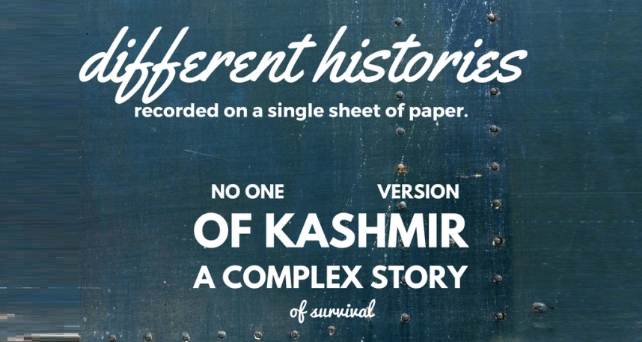The Kashmir conflict has become the forever war, a place where suffering is increasingly psychological and people marked by shame, fear, alienation, anguish, stress, trauma and unimaginable loneliness. It is here in “paradise on earth” that I discovered the most memorable women.
I’m often amazed at how meeting one person at one time in one place can change you.
In an earlier post, I wrote a tribute to Mugli, who many called the lonely mother. Ten years ago, I met Mugli, an elderly woman in an oversized house in the narrow alleys of Srinagar city in Indian-held Kashmir, a valley heavily guarded by the Army and police.
I followed my guide to find the legendary mother. He told me Mugli’s son, a schoolteacher named Nazir Ahmad Teli, went missing one day in September 1989. He was on his way to school. It was an auspicious time. The militant movement in Kashmir was in full swing. Every young man was suspected of being a militant.
In the hunt for men with guns, the Indian police and Army arbitrarily arrested anyone in sight. Mugli’s son was likely one of them.
Hundreds of innocent young men vanished. A human rights organization led by Parveena Ahangar of the Association of Parents of Disappeared Persons (APDP) suggests that at least 10,000 men have gone missing since 1990. A mother with her own son missing, Ahangar comforts women like Mugli. Women (and men) sit in the city’s main square, holding photographs of loved ones. Women do not know what has happened to their sons or husbands. Whether they are dead or alive. Buried or behind bars. They are just missing.
After 1989, Mughli’s son never returned. But she never stopped looking. She lived on faith and hope. She spent 18 years looking for her boy. She prayed. Nothing was more important than her son. When we met, I asked her “Do you believe you will find him?”
I would have felt peace if I knew my son died for a cause. Had he been part of the movement, and then died, I would have accepted his death. But I know he was not a fighter. He didn’t carry a gun. He just had books,” she said.
What if he is gone?
I can’t imagine him dead. If he is dead, then he has gone to Heaven.”
A year later, Mugli died.
Stories like these are retold in the new edition of Secrets of the Kashmir Valley. These stories are not only heart-felt but a key part of Kashmir’s modern history. I fell in love with women like Mugli, whose voices are often unheard by the outside world.
And this is why I write. To tell the untold stories because they must be heard and felt.


